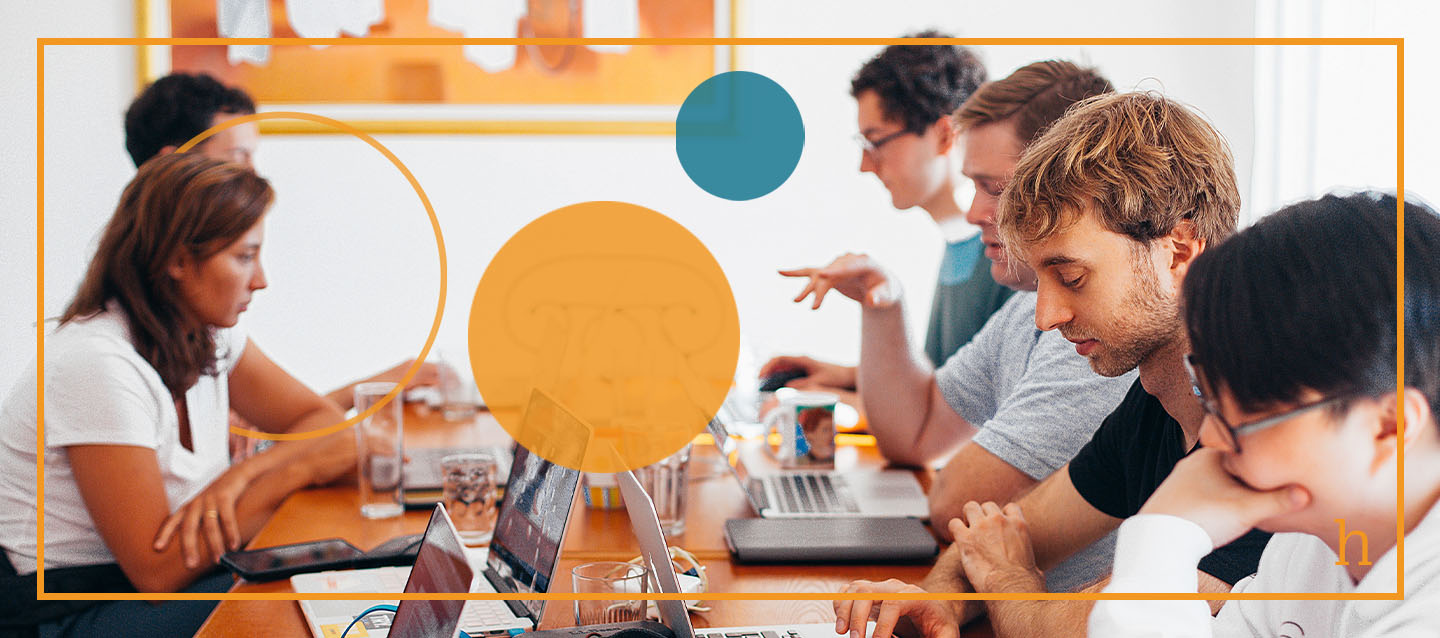Diet culture is the collective set of social expectations telling us that there's one way to be, one way to look, and one way to eat. And that we’re a better person — a more “worthy” person — if our bodies are a certain way. Right?
Well, productivity culture is telling us that we are better, smarter, and more successful if we never stop growing, working, and improving. Rest has become synonymous with laziness.
It’s evident that there’s a collective fixation on busyness happening all around us. We see it on social media, at our workplaces, in pop culture, and in our friends and family. It has become the new normal to be part of conversations that solely revolve around productivity.
The problem isn’t striving for productivity in and of itself. But the problem starts when we begin to feel like it’s wrong to ever do nothing (i.e., relax and merely be).
Why? Because the moment we stop to recharge, contemplate, and simply exist, we’re bombarded with evidence of the people around us doing the opposite. This inevitably leads to the feeling that we’re falling behind. It makes us self-conscious about our own achievements, placing a gigantic pressure on our shoulders to keep moving, creating, and working in a seemingly never-ending cycle.
We’ve learned to associate productivity with ambition, success, hard work, and the efficient usage of time. Leisure, on the other hand, seems less and less attractive as we start to correlate it with laziness.
Have you ever tried sitting down at the beach, in your backyard, or on your couch to simply slow down — and then gotten hounded by thoughts of all the things you could be doing instead of “wasting your time?” Me too. This is where the concept of “productivity” becomes toxic. We’ve become addicted to being productive, and we attach our self-worth to it — sometimes even our identities, too.
The good news is that there’s always something we can do to change our reality. It might be difficult to unlearn this mindset and behavioral pattern, but here are some strategies that can help detach your self-worth from your level of productivity.
- Practice mindfulness.
Sitting down in silence — even if just for five minutes a day — has been proven to benefit our mental, emotional, and physical health. From this perspective, one might argue that mindfulness is actually deeply productive! There are a variety of available resources (both free and paid) that you can access for meditation and visualization exercises. In addition, practicing mindfulness can be done anytime and anywhere. You can even do it with your partner, family members, friends, roommates, or even a co-worker, adding an extra benefit to the practice!
- Set time limits for social media.
If you’re trying to unwind while online, seeing loved ones, peers, and celebrities alike posting about how busy and successful they are (i.e. going all-in on hustle culture) might just make you more anxious. This can easily lead you to ruminate on all the things you could be doing, generating feelings of anxiety, pressure, and self-defeat. Putting time limits on your social media accounts (which can be done within most apps), can allow you to scroll mindlessly for a few minutes or hours a day without feeling overwhelmed.
If you’d like to go an extra step, do a social media detox! This can be done by unfollowing accounts that post only about productivity and/or following others that foster rest and encourage relaxation.
- Set boundaries with friends and family:
Being open and honest with your friends and family about how certain conversations are impacting you can be the first step towards improving well-being. Setting healthy boundaries doesn’t have to mean hostility. Rather, it means that you genuinely value and appreciate the people around you, and would rather spend your time together discussing different topics or trying activities that aren’t necessarily grounded in self-improvement and achievement (e.g. going to the movies, cooking at home, or playing board games).
- Practice seeing rest as productive.
I say this to my clients all the time. I invite you to see rest the same way you would see charging your phone when its battery is running low. You need to plug it in order for it to charge and function the next day, right? Well, it’s the same with you. You need to have your batteries full in order to be fulfilled at work, at home, with your loved ones, and in your commitments. Otherwise, where are you obtaining your energy from?
When guilt comes up, learning to see rest as productive can be a game changer. Cognitive Behavioral Therapy (CBT) teaches us that the thoughts we create generate emotions that then impact the way we behave. So, if you cultivate thoughts of rest being productive (and very much needed!), you will foster feelings of calm and groundedness that will lead you to present yourself in the world as such.
The problem isn’t in striving for productivity alone. The issue lies in becoming addicted to it to the point where leisure and relaxation become anxiety-provoking. The problem is being unable to find comfort and a sense of purpose outside one’s quantifiable achievements.
Remember that your value as a human being goes far beyond what you accomplish professionally. The sublime comfort of simply existing — that is, recognizing the inherent joy of being alive in proximity to who and what you love — is more than enough.

